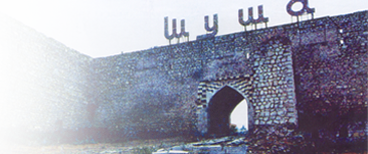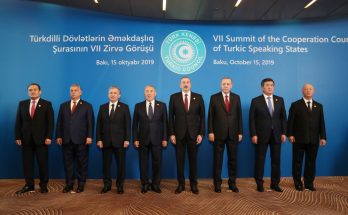 European Union, being the most authoritative organization in Europe, is interested in ensuring peace and security in EU. Azerbaijan is a part of Europe. The conflicts in the South Caucasus region, including Nagorno-Karabakh, have a direct impact on European security,” Deputy Chairman and Executive Secretary of the New Azerbaijan Party Ali Ahmedov said, the party’s official website reported. He was commenting on EU’s role that it could play in resolving the Armenian -Azerbaijani Nagorno-Karabakh conflict.
European Union, being the most authoritative organization in Europe, is interested in ensuring peace and security in EU. Azerbaijan is a part of Europe. The conflicts in the South Caucasus region, including Nagorno-Karabakh, have a direct impact on European security,” Deputy Chairman and Executive Secretary of the New Azerbaijan Party Ali Ahmedov said, the party’s official website reported. He was commenting on EU’s role that it could play in resolving the Armenian -Azerbaijani Nagorno-Karabakh conflict.
“Azerbaijan that is located in the South Caucasus region plays an important role in European energy security and the country’s significance is increasing every day. Therefore, the question of stability in the region becomes more apparent,” he added.
The conflict between the two South Caucasus countries began in 1988 when Armenia made territorial claims against Azerbaijan. Armenian armed forces have occupied 20 percent of Azerbaijan since 1992, including the Nagorno-Karabakh region and 7 surrounding districts.
Azerbaijan and Armenia signed a ceasefire agreement in 1994. The co-chairs of the OSCE Minsk Group – Russia, France, and the U.S. – are currently holding the peace negotiations.
Armenia has not yet implemented the U.N. Security Council’s four resolutions on the liberation of the Nagorno-Karabakh region and the occupied territories.
“In this sense, EU began to openly speak about its interest in the rapid resolution of the Armenian-Azerbaijani Nagorno-Karabakh conflict. In particular, a number of problems that have arisen over the past years in ensuring Europe’s energy security greatly increased the role of Azerbaijan from this point of view. I believe that European Union has mechanisms to influence the settlement of the conflicts in South Caucasus. However, this structure should consider the forms of these mechanisms,” he added.
According to him, today’s reality is that the OSCE Minsk Group is involved in the solution of the Nagorno-Karabakh problem.
“Most of the OSCE Minsk Group’s representatives are members of EU. In this case, it is clear that European Union has leverage to influence the process. But the question is how states are ready to restore justice. I think that if the organization’s member-states are interested in this, then problem can be solved quickly, “Ahmadov noted.
Trend




